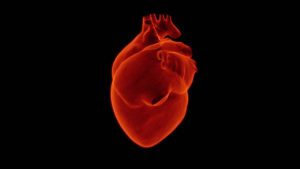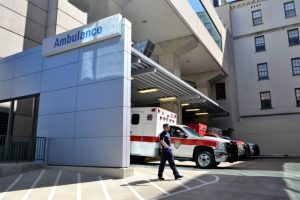Many people who suffer from heart disease don’t know they have it until they experience a heart attack.

Some heart attacks can seem to come out of nowhere, with almost no warning before they occur. However, most have warning signs that are much easier to detect when you know what you’re looking for.
Whether you believe you have heart disease or not, being able to spot the warning signs of a heart attack could save your life.
How to Recognize a Heart Attack
Knowing the warning signs is a key factor in getting medical help as soon as possible. If you brush off these symptoms as nothing to worry about, you could put yourself in greater danger, so always treat any possible symptoms seriously.
Chest Pain
By far, the most common symptom of a heart attack is chest pain. This usually feels like discomfort accompanied by a squeezing feeling of pressure on the left side or center of your chest. Pain may be severe or fairly mild, so don’t ignore it just because the pressure or tightness is light.

Chest pain is a fairly general symptom, and it can have many causes completely unrelated to a heart attack or heart disease. Chest pain that comes on suddenly with no clear cause is often an indicator of a potential heart attack, and it’s best not to take any risks. This kind of pain is even more likely to be caused by a heart attack if it is accompanied by other common symptoms.
Upper Body Pain
In addition to chest pain, a heart attack can cause pain that radiates through other areas of your upper body. Left arm pain is common, especially for men, but you can also experience pain or tightness in your upper back, neck, and jaw.
Shortness of Breath
Heart palpitations and chest tightness can leave you feeling out of breath during a heart attack. You may struggle to take full, deep breaths, even if you were previously sitting or laying down without issues. If you experience shortness of breath without a clear cause, it could be that you are having a heart attack or another medical emergency.
Nausea
Heart attacks can leave you feeling nauseated, which can sometimes lead to vomiting. Nausea and vomiting are common to many different health conditions both major and mild, but when associated with chest pain and shortness of breath, it might be another indicator of a heart attack.
Heart Attack Differences Between Men and Women
Men and women often experience different symptoms for heart attacks.
Men are more likely to feel chest pain, especially pain that feels like squeezing. Shortness of breath, nausea, and pain in the jaw, back, or neck are all common symptoms for men too. Men often experience severe pain in their left arms during a heart attack as well.
For women, left arm pain is much rarer, and the range of symptoms is usually wider. In addition to the regular symptoms, women may also experience sudden and serious fatigue, fainting, or indigestion. Women may not even have chest pain during a heart attack, so it’s especially important to stay vigilant for these less common symptoms.
How to React If You Are Having a Heart Attack
If you think you might be having a heart attack, you should seek medical treatment as quickly as possible. Delaying treatment even by a few minutes can put your life in jeopardy.
First, don’t try to drive yourself to the hospital. It’s better to call 911, as the EMTs who arrive in the ambulance can provide emergency care on the way to the hospital. Additionally, if you lose control while driving, you could get in an accident, delaying help even further and potentially injuring yourself and others.
While waiting for the ambulance, follow any directions the dispatcher gives you. If you’re at home, unlock the door and sit or lie down nearby so the EMTs can reach you faster.

After Receiving Medical Care
Once you see a doctor and you’re on the road to recovery, always follow their advice to improve your heart health and prevent future heart attacks. If you continue the same bad habits as before, you’ll likely make your heart disease worse. About one in five people who have a heart attack will have another within five years, and this risk only goes up if you don’t take care of your body.
If you follow your doctor’s advice and take any necessary prescriptions, you can greatly lower your chances of experiencing a second heart attack and improve your overall health.
Final Thoughts
Heart attacks can be unexpected and frightening, but acting quickly increases your chances of making a full recovery. Make sure you understand the signs of a heart attack and always ask for assistance from friends or bystanders right away.
